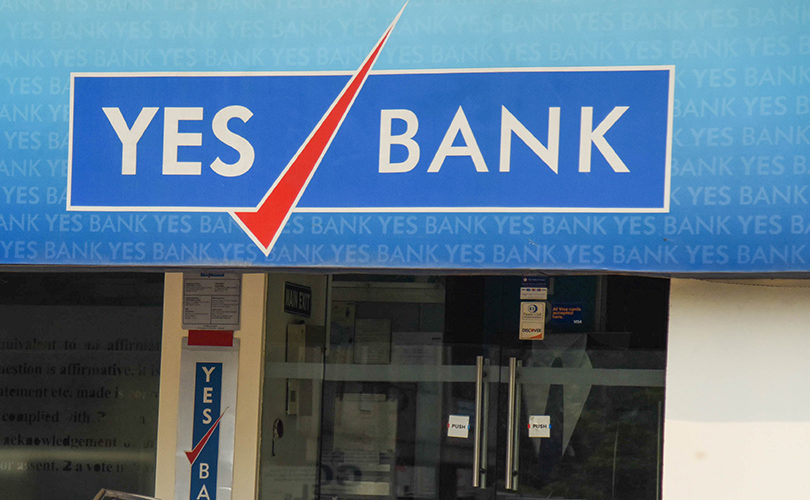
Yes Bank shares went up 6 per cent in late morning deals on Thursday after slipping nearly 2 per cent in early trade after ratings agency India Ratings (Ind-Ra) downgraded the bank’s long-term ratings.
Snapping its two-day losing streak, Yes Bank share price gained as much as 6.18 per cent and touched an intra-day high of Rs 170.70 against previous closing price of Rs 160.75 on the Bombay Stock Exchange. In the opening trade, the scrip dipped about 2.5 per cent to Rs 156.75, close to its 52-week low of Rs 147 touched on November 29, 2018.
On the National Stock Exchange, Yes Bank shares were trading 5.32 per cent higher at Rs 169.30 apiece. The scrip opened lower at Rs 158 against previous close level of Rs 160.75, and touched a high of Rs 170.90 during the day’s trade so far.
In the last seven sessions, Yes Bank shares dropped nearly 34 per cent from the level of Rs 237 touched on April 26, following weak March quarter results which led to a series of downgrades by brokerages. The private sector lender reported a surprise net loss of Rs 1,506 crore during the fourth quarter ended March 31 2019, as against a profit of Rs 1,179 crore in the year-ago period. The bank slipped into losses after the provisions soared over nine times.
India Ratings and Research (Ind-Ra) has downgraded Yes Bank’s long-term issuer rating to ‘IND AA-‘ from ‘IND AA+’, with negative outlook. The agency, however, affirmed the bank’s short-term issuer rating at ‘IND A1+’.
The downgrade reflects the quick credit migration (to sub-investment grade) in the bank’s certain group exposures, Ind-Ra said, adding that it expects some of these assets to slip into the non-performing category.
The negative outlook has reflected the downside risks to the agency’s estimates of profitability and capital buffers that could emanate from substantial delays in the resolution of certain stressed assets, Ind-Ra said in a report.
The rating agency factored the bank’s fourth-largest position in the private banking sector and appointment of a new CEO with the stated strategy of focusing on multiple granular income streams and assets and liabilities that could take one-two years to show meaningful traction. The agency also includes the account and bank’s relatively high proportion of bulk funding and asset-liability tenor mismatches compared to larger private sectors peers.
The ratings agency opined that material improvement in the operating performance and strengthened capital levels could reverse to a revision in the outlook to stable.
Last week, another ratings agency ICRA downgraded Yes Bank’s long-term ratings along with negative outlook, citing a spike in its lower-rated advances and falling core capital buffers.



